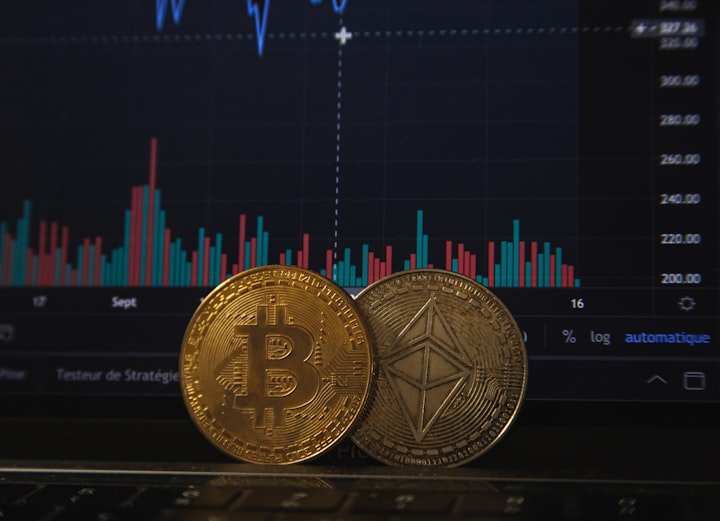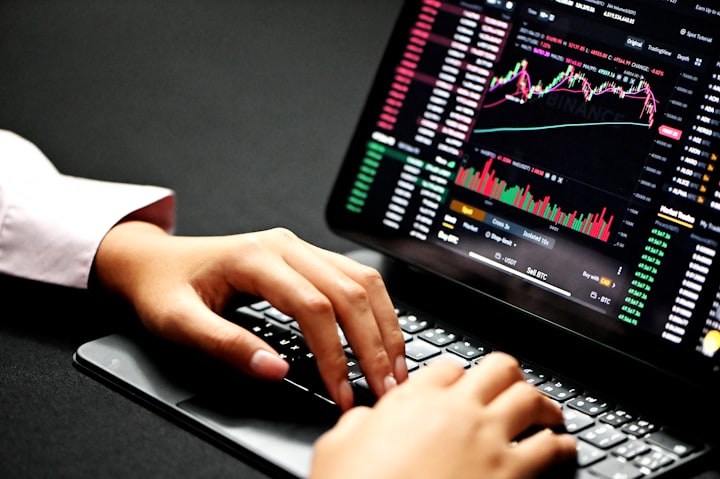Mastering the Art of Trading: A Guide to Becoming a Great Trader
How to become a successful trader

Mastering the Art of Trading: A Guide to Becoming a Great Trader
Introduction:
Financial market trading may be exhilarating as well as intimidating. In our world, one can make or lose fortunes in an instant. But being a successful trader takes more than just good fortune—it takes talent, dedication, and ongoing education. We'll go into the foundations of becoming a great trader in this tutorial, including tips and tactics to help you successfully navigate the markets.
Understanding the Basics:
It's crucial to comprehend the fundamentals of trading before delving into its complexities. Buying and selling financial items including derivatives, stocks, currencies, and commodities with the intention of turning a profit is known as trading. Accurately anticipating the movement of asset values and timing trades are essential to success..
Developing a Trading Plan:
To become a great trader, you need to start with a well-thought-out trading plan. Your trading objectives, risk tolerance, preferred trading style, and methods should all be outlined in this strategy. Having a well-defined plan in place can assist you in maintaining discipline and focus while preventing rash actions that could lead to problems and to loss.
Education and Continuous Learning:
Since the financial markets are always changing, it's important to keep up to date and keep learning. Invest some time in learning about market patterns, technical and fundamental analysis, and various trading strategies. To broaden your knowledge, go to seminars, study books, and keep up with reliable financial news sources.
Risk Management:
.Successful trading is not just about making profits; it's also about managing risk effectively. A great trader understands the importance of preserving capital and minimizing losses. Implement risk management techniques such as setting stop-loss orders, diversifying your portfolio, and never risking more than you can afford to lose on any single trade
Emotional Discipline:
For a trader, emotions might be their deadliest enemy. Poor trading results and illogical decision-making are frequently caused by fear and greed. Even in times of market turbulence, great traders exhibit emotional self-control by adhering to their trading strategy and staying composed and concentrated. Having a resilient and patient mindset is essential for long-term success..
Technical Analysis:
Utilizing a variety of indicators and patterns, technical analysis is examining past price charts in order to forecast future price changes. Technical analysts, like great traders, are skilled at identifying possible entry and exit positions utilizing indicators like moving averages, MACD, RSI, and Fibonacci retracements. But it's important to keep in mind that technical analysis is not infallible and ought to be applied in concert with other analytical techniques.
Fundamental Analysis:
A trader's toolkit should also include fundamental analysis in addition to technical analysis. Evaluating a company's or asset's underlying financial performance and health is known as fundamental analysis. Proficient traders closely monitor economic indicators, earnings releases, and geopolitical developments that may have an effect on asset values. Trading decisions can be improved by combining technical and fundamental analysis.
Adaptability and Flexibility:
Because of the dynamic and ever-changing nature of the financial markets, traders must modify and change their techniques as necessary. Excellent traders are adaptable and receptive, eager to try out novel strategies and grow from their errors. They are quick to adjust when needed because they recognize that what works in one market situation might not work in another.
Patience and Persistence:
.Great trading requires patience and commitment. It's critical to set reasonable goals and realize that success won't come easily. Proficient traders demonstrate endurance and perseverance, consistently honing their abilities and adjusting to shifting market circumstances. Although they are aware that failures are inevitable, they choose to see them as teaching moments rather than setbacks.
Continuous Evaluation and Improvement:
Even the most prosperous traders are always looking to sharpen their abilities and execute better. Proficient traders consistently assess their transactions, scrutinizing the successful and unsuccessful aspects. They maintain thorough records of every deal they make, spotting patterns and trends that can be used to improve their tactics. For long-term success, traders can stay ahead of the curve by adopting a philosophy of continual development.

Conclusion:
It takes commitment, discipline, and a willingness to learn to become a great trader. You can improve your chances of success in the financial markets by learning the foundations of trading, creating a sound trading strategy, and improving your abilities by practice and education. Remind yourself to maintain discipline, efficiently manage risk, and never give up on improving. You may reach your objectives and develop into a skilled trader with perseverance and patience.
To becoming a great trader Join Now





Comments
There are no comments for this story
Be the first to respond and start the conversation.